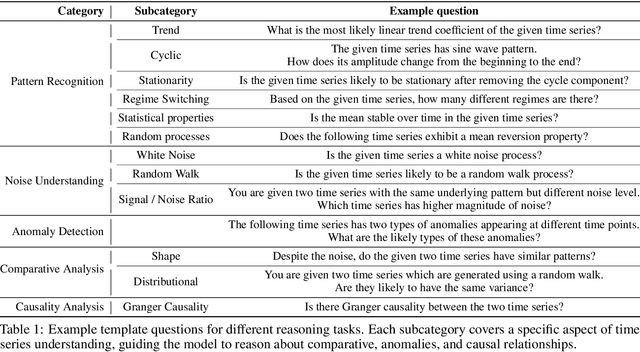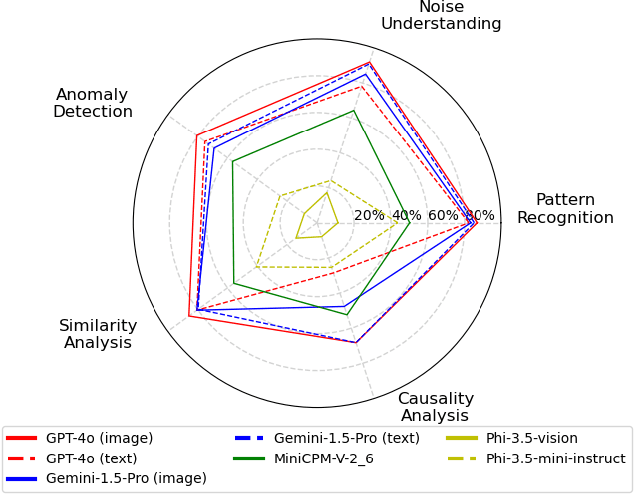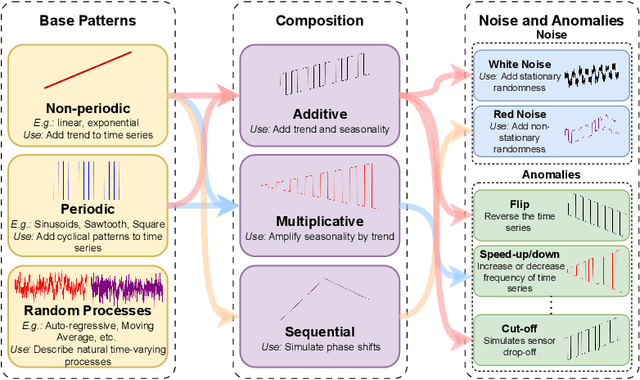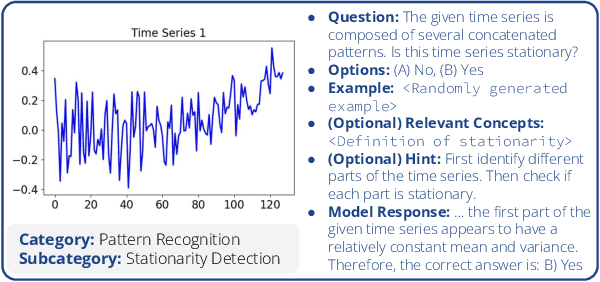TimeSeriesExam: A time series understanding exam
Paper and Code
Oct 18, 2024



Large Language Models (LLMs) have recently demonstrated a remarkable ability to model time series data. These capabilities can be partly explained if LLMs understand basic time series concepts. However, our knowledge of what these models understand about time series data remains relatively limited. To address this gap, we introduce TimeSeriesExam, a configurable and scalable multiple-choice question exam designed to assess LLMs across five core time series understanding categories: pattern recognition, noise understanding, similarity analysis, anomaly detection, and causality analysis. TimeSeriesExam comprises of over 700 questions, procedurally generated using 104 carefully curated templates and iteratively refined to balance difficulty and their ability to discriminate good from bad models. We test 7 state-of-the-art LLMs on the TimeSeriesExam and provide the first comprehensive evaluation of their time series understanding abilities. Our results suggest that closed-source models such as GPT-4 and Gemini understand simple time series concepts significantly better than their open-source counterparts, while all models struggle with complex concepts such as causality analysis. We believe that the ability to programatically generate questions is fundamental to assessing and improving LLM's ability to understand and reason about time series data.
 Add to Chrome
Add to Chrome Add to Firefox
Add to Firefox Add to Edge
Add to Edge